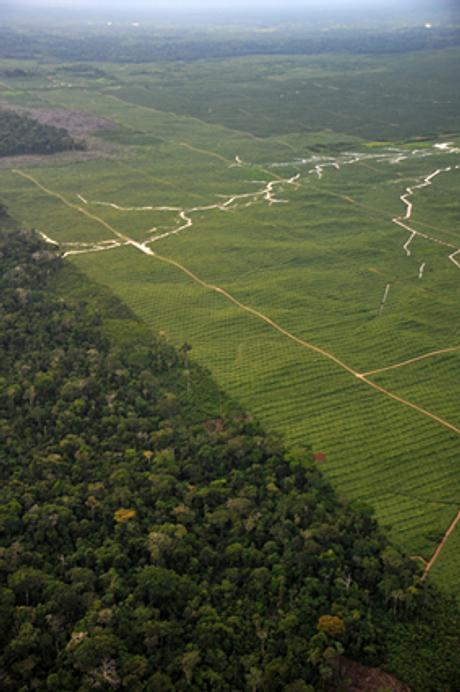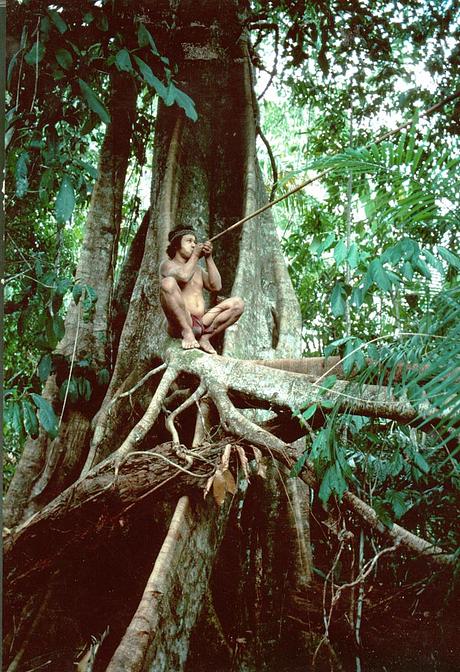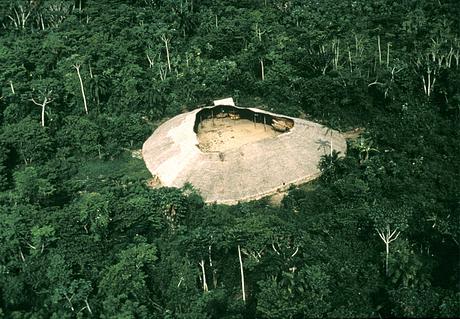Palm oil expansion threatens Palawan tribe
January 23, 2011
 © Thomas Quirynen/Survival
© Thomas Quirynen/SurvivalThis page was last updated in 2011 and may contain language which is now outdated.
The Philippine government’s push to expand palm oil plantations is threatening the members of the Palawan tribe living in the lowlands of Palawan Island.
In the last few years nickel mining has ravaged valuable areas of rainforest, destroying sacred sites and causing the siltation of rivers and farmland. It is threatening the Palawan tribe’s watersheds, which provide water for the lowland communities.
Now, the lowland Palawan and their land are being confronted with the threats posed by the expansion of oil palm plantations. Oil palm is used for biofuel and is found in many foods and cosmetics.
Palm oil plantations are expanding into land the Palawan use for shifting cultivation and for collecting plants for medicines, food and house building. In some places, plantations have taken over cultivated areas such as rice fields.
The Palawan tribe, comprising around 40,000 people, are shifting cultivators, clearing a small area of the forest for food production before moving on and allowing the forest to regenerate. They hunt wild pig and collect and sell resin, rattan canes and wild honey. The lowland Palawan also plant coconuts and raise livestock.
Their home, the mountainous Palawan Island, lies between the South China and Sulu seas and is referred to by the Philippine Department of Tourism as ‘the Philippines’ last ecological frontier’. An island province, Palawan is part of UNESCO’s ‘Man and Biosphere Reserve’ and was once described by the underwater explorer Jacques Cousteau as having ‘the most beautiful seascape in the world.’
The Palawan tribe has had little say in the development of the plantations. Far from giving their consent to the oil palm, they have not been properly consulted by Agumil Philippines Inc. (the company responsible for the plantations) or by the government authorities. They do not have a clear understanding of agreements that have been made in their name.
‘There is absolutely no transparency in the company’s dealings with local communities,’ says Artiso Mandawa, chair of the local Indigenous organization, ALDAW (Ancestral Land/Domain Watch).
Survival International supports ALDAW in its call for a halt to oil palm expansion on Palawan. ‘Survival is calling for the Philippines government to ensure that the Palawan’s free, prior and informed consent is sought before any activities take place on their land,’ says Survival Director, Stephen Corry.
This consent is only that which is demanded by national and international law. As Artiso Mandawa continued, ‘It is well known that this crop benefits better-off farmers and entrepreneurs, rather than small-scale farmers and Indigenous peoples.
‘We look forward to more sustainable investments for improving agricultural productivity of marginalized farmers. Meanwhile, a moratorium on oil palm expansion should be implemented with haste.’



